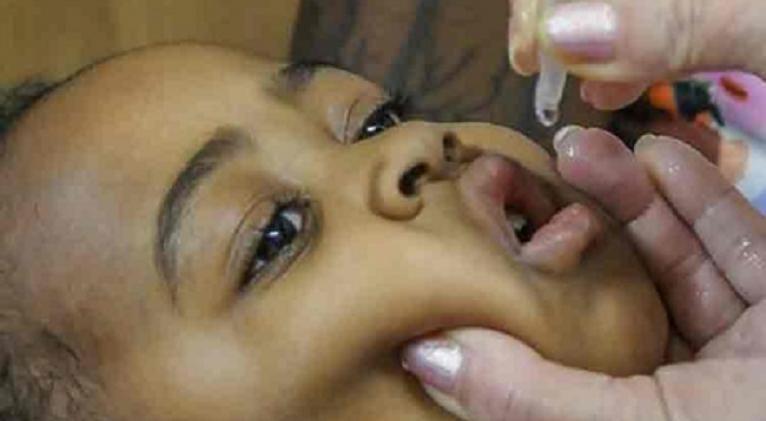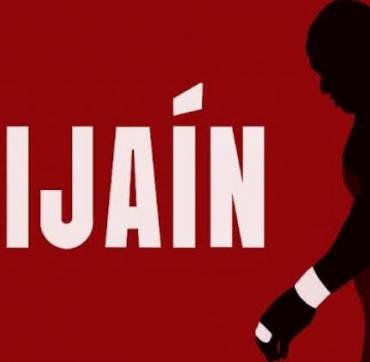Red Alert: 48 Million Children Without Vaccines in the World, None are Cuban
especiales

Right now, a Cuban child may be being vaccinated as part of the second stage of the 62nd National Oral Polio Vaccination Campaign, which began on February 24th.
This second stage coincided with Vaccination Week in the Americas, and those who could not receive their dose until the 29th, have that possibility between May 2nd and 6th.
Despite the many difficulties Cuba undergoes today, its children are privileged in this order, while, painfully, the reality experienced by other minors worldwide is a very different one.
This can be seen in the most recent report World State of Children 2023, presented by Unicef at the end of April and where it’s reported that in Latin America and the Caribbean currently 1 out of 4 children lack vital vaccines. More than 1.7 million boys and girls in our region have never received a vaccine.
This geographical area and also the whole world are experiencing the greatest decline in childhood vaccination in the last ten years.
In particular, those children who live in the poorest households are three times more likely to not be vaccinated in a short or medium period of time.
The Pandemic and More Guilty Parties
During and after COVID-19 pandemic, child vaccination coverage has suffered a drastic reduction, but even before this hellish virus appeared, already many millions of children, especially in the most unprotected geographies of the planet, were vulnerable against serious and preventable diseases.
Among the latter have resurfaced the diphtheria, measles, and also poliomyelitis, which had been considered eradicated or controlled in Latin America and the Caribbean, global vaccination rates have dropped to levels not seen since 2008. So unfortunate is the situation that this is the second region in severity, preceded only by East Africa.
Looking at other countries, it’s painfully seen that last year, for example, cholera cases and deaths from it increased worldwide, but above all in East Africa, the Middle East, and South Asia, places where no outbreak had been recorded for more than ten years; while in the Caribbean, particularly in Haiti, thousands of infants were harmed by a serious epidemic of this disease.
Also last year, dozens of massive measles outbreaks cast a shadow over the world, especially in Afghanistan, Ethiopia, Nigeria, Somalia, and Yemen. It’s the bitter fruit of not having vaccinated almost 40 million children in 2021 to protect them from this illness.
The same has happened with polio. After praiseworthy advances in their confrontation, in the last two years impressive outbreaks have emerged in nations like Chad, Nigeria, the Democratic Republic of the Congo and Yemen or in Malawi and Mozambique.
The latest Unicef report makes it clear when referring to Latin America and the Caribbean that, in addition to COVID-19, other reasons have threatened children's vaccination: natural disasters, violence, urbanization, instability and migration that contribute to the increase in inequalities; to the lack of equity in public health expenses in the region and which also conspires against primary health care, especially for the most vulnerable.
Cuban Pride
Cubans can proudly raise our heads when it comes to childhood vaccination.
The representative of UNICEF Alejandra Trossero recognized him, during the presentation on the Island, at a press conference, of the State of the World's Children 2023.
The representative of Unicef in Cuba, Alejandra Trossero (left) together with Lena López Ambrón, National Head of the MINSAP Vaccination Program. Photo: taken from radiorebelde.cu
“At a time when vaccination has regressed so much throughout the world, particularly in the region, Cuba has been able to keep, despite everything, very high coverage during the pandemic, and this speaks of a primary health system designed and it’s structured to ensure that children receive the vaccination they need since they are born and I think that’s a great lesson learned," he said.
In a special way, Unicef board of directors drew attention to the anti-Covid-19 vaccination campaigns "deployed here with three of our own vaccines, which made us the first country in Latin America and the Caribbean to have our own vaccines against this deadly virus.
The effort was so great that in Cuba it was possible to vaccinate more than 98% of its population with the complete anti-COVID-19 set, and 98% with at least one booster. 98.5% of the pediatric population older than 2 years was equally vaccinated, and all this made this Caribbean nation the country with the highest vaccination rate in the world.
Besides the struggle against SARS-CoV-2, Dr. Trossero highlights that even in the context of the pandemic health crisis, the Expanded Immunization Program did not stop in Cuba, allocating resources to ensure broad coverage at the national level.
Experts agree that vaccination is the least complex and most cost-effective of public health interventions, especially considering how much suffering it can spare children and their families in the first place, and also the subsequent costs that such unprevented diseases could entail, vaccines, particularly for the most vulnerable areas and households.
Referring specifically to Latin America and the Caribbean, the Regional Director of UNICEF for Latin America and the Caribbean, Dr. Garry Conille, said it in the presentation of the report: "Ten years ago, this region demonstrated that it could protect children from life threatening diseases. There is no reason why we can't do it again now, with more knowledge, capacity, and resources."
However, one condition is just as essential in these endeavors, and Dr. Conille himself indicated it: the need for a political will to promote this humanitarian action, in defense of an elementary human right, the right to life.
Translated by Amilkal Labañino / CubaSí Translation Staff














Add new comment